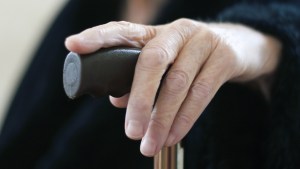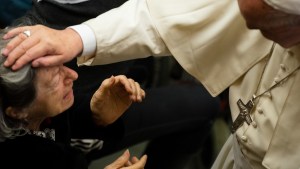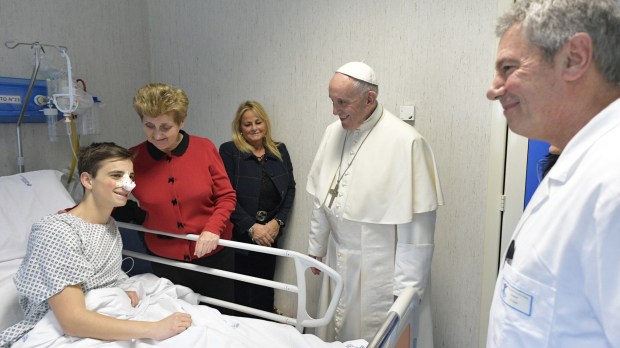When a sick person feels loved, the desire for euthanasia “disappears,” said Pope Francis on October 1, 2018, while receiving in audience at the Vatican participants in a congress on health ethics.
Caregivers, acknowledged the Successor of Peter, can not always do the impossible. But they can accomplish a “miracle”: that of “finding a brother in the sick person, in the helpless person before us,” and recognizing “the immense value of his dignity as a human being, as a child of God.”
This awareness must be at the heart of any health system, the pontiff stated. Thus, despite the economic crisis, the basis of any health organization can only be the “search for the good.”
This is all the more necessary because there is a “strong tendency” in the world to legalize euthanasia, the pope lamented. Faced with this, we need to offer “serene and participative” support, he pleaded.

Read more:
Houston hospital and Vatican council join in opposing euthanasia
“If the person [in palliative care] feels loved, respected, and accepted, the dark shadow of euthanasia disappears or becomes nearly non-existent, because the value of a person’s being is measured by their capacity to give and receive love, not by their productivity,” the pope clarified.
The work of the caregiver, continued the Bishop of Rome, is not limited to restoring the health of the patient. It is actually “to attend to, to be concerned about, to take care of, and to take responsibility for the other, who is your brother.”
This requires “responsibility and loyalty” to the patient and not a “bureaucratization” of care. In addition, said the pope, it’s necessary to respect the patient’s autonomy.
Active euthanasia—the administration of a lethal substance to a person to cause death—is legal in five countries. Assisted suicide is allowed in three countries and in some US states.

Read more:
Why there’s still time to stop euthanasia

Read more:
Pope discourages “overzealous treatment” while affirming that euthanasia is always wrong

